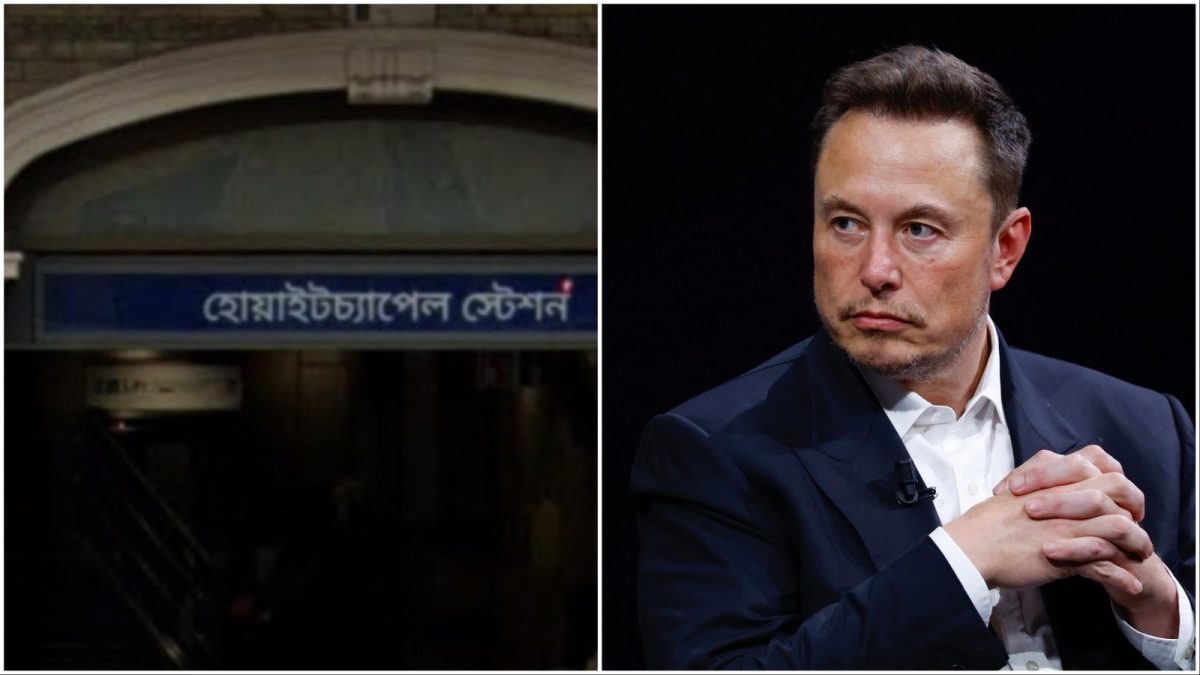 |
|
The recent controversy surrounding the Bengali signage at London's Whitechapel Station has ignited a passionate debate about language and cultural representation in public spaces. This debate, unexpectedly fueled by the endorsement of Elon Musk, highlights the complex interplay between local identity, national identity, and the increasingly globalized nature of urban environments. The installation of the bilingual signage in 2022, intended as a tribute to the significant Bangladeshi community in East London, was initially met with largely positive reception, celebrated by figures such as West Bengal Chief Minister Mamata Banerjee as a symbol of the growing global influence of the Bengali language and culture. However, the seemingly innocuous act of adding a second language to a station name has now become a lightning rod for discussions around immigration, national identity, and the role of public spaces in reflecting diverse populations. The contrasting viewpoints highlight a fundamental tension between the desire to celebrate cultural diversity and the perceived need to maintain a singular national identity, represented here by the English language.
The intervention of Elon Musk, a prominent figure known for his outspoken views on various societal issues, adds a significant layer to the controversy. His simple 'Yes' endorsement of MP Rupert Lowe's call for 'English only' signage on X, the platform he now owns, amplified the issue far beyond the local context. Musk's endorsement, devoid of any explanation or nuance, immediately drew significant attention, framing the debate within a broader discourse on immigration and cultural integration prevalent in many Western countries. This highlights the power of high-profile endorsements in shaping public opinion and accelerating the dissemination of particular viewpoints, often regardless of the specific details or complexities involved. His seemingly impulsive response invites questions about the consideration given to the cultural sensitivities inherent in such a decision, suggesting a potential lack of awareness or understanding of the deeper significance of multilingual signage in a diverse urban landscape.
The underlying issue transcends the specifics of the Whitechapel station signage. It touches upon the larger questions of how best to integrate diverse communities while preserving a sense of national unity. One perspective argues that prioritizing English, the official language, ensures clarity and accessibility for all residents and visitors. Supporters of this viewpoint often raise concerns about potential confusion or exclusion of those unfamiliar with Bengali. On the other hand, proponents of multilingual signage view it as a necessary step towards inclusivity, recognizing and celebrating the contributions of various cultural groups that form the rich tapestry of London's diverse population. The Whitechapel station, situated in an area with a large and long-established Bangladeshi community, serves as a particularly potent symbol in this debate. The signage doesn't merely provide information; it represents a form of cultural recognition and acknowledgment of the significant role this community plays in the fabric of East London.
The controversy also underscores the ongoing tension between local and national identities in a globalized world. Local authorities, like the Tower Hamlets council, often prioritize policies that reflect the specific needs and cultures of their immediate constituents. In this case, the decision to install Bengali signage reflected the council’s recognition of the significant Bangladeshi population in their borough. However, such local initiatives can sometimes clash with broader national narratives that emphasize a singular national identity, often centered around language and cultural symbolism. The debate around the Whitechapel signage reveals a struggle to reconcile these different levels of identity, highlighting the complexities of managing diversity in a multicultural society. The long-term implications of such public discourse will shape future decisions about language use and cultural representation in public spaces across the UK and beyond.
Ultimately, the Whitechapel Station signage controversy serves as a case study in the challenges of navigating multiculturalism in a modern context. It highlights the need for thoughtful dialogue, rather than simplistic pronouncements, when addressing issues related to cultural representation and linguistic diversity in public spaces. The debate underscores the importance of considering the multiple perspectives and potential impacts of such decisions, moving beyond simple binary oppositions and fostering a more inclusive and nuanced approach to navigating the complexities of a multicultural society. The controversy also serves as a reminder of the power of individual voices, particularly those amplified by high-profile figures like Elon Musk, and their ability to shape public opinion, regardless of the depth of understanding displayed on a particular issue. The discourse surrounding this issue continues to evolve, underscoring the enduring nature of debates related to national identity, cultural inclusion, and the multifaceted role of language in shaping public spaces.
Source: Elon Musk Backs UK MP's 'English Only' Call Over Bengali Signage At London Station
